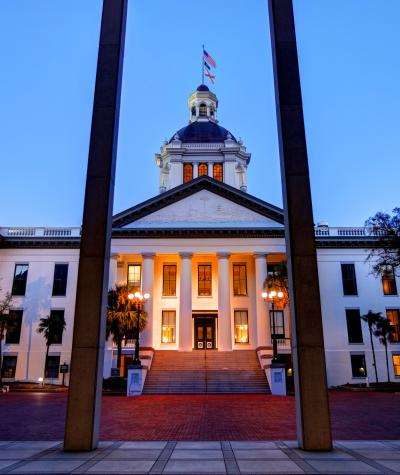Over the past few years, attacks on our democracy—from extreme gerrymandering to January 6 to the dozens of anti-voter bills passed at the statewide level—have been marked by a common theme: a pernicious desire to silence voters’ voices and subvert the will of the people.
2023’s state legislative sessions have seen that troubling trend continue, albeit with a novel approach: an effort to attack state ballot initiative processes, one of the few remaining avenues voters can exercise to make their voices heard.
This is undemocratic and wrong. For more than 100 years, ballot initiatives have empowered everyday Americans to bypass unresponsive state legislatures, pass popular policy and validate the will of the people.
Now, from Ohio to North Dakota to Missouri to Utah and beyond, politicians are seeking to erect barriers to the ballot initiative process—the latest step in a strategy to wrest political power from voters and place it squarely in the hands of increasingly unaccountable politicians and special interests.
A snapshot of the bleak landscape: Utah politicians sought to raise the threshold to pass a ballot initiative from a simple majority to 60%, an effort that ultimately failed in the State Senate after overwhelmingly passing the state House (Campaign Legal Center has been active in opposing attacks on direct democracy in Utah).
Missouri politicians moved to raise their initiative threshold from 50.01% to 57%—and mislead voters in the process—though the effort unexpectedly failed.
North Dakota politicians approved a bill raising the number of signatures needed to propose constitutional amendments and requiring such initiatives to win both the primary and general election.
Florida politicians sought to raise the state’s threshold to pass a ballot initiative from 60% to nearly 67%, a measure which passed the state House but ultimately stalled in the state Senate.
In Arkansas, voters resoundingly rejected a constitutional amendment that would make it more difficult to get future initiatives on the statewide ballot. Politicians then overruled the will of the people and rammed through such a measure despite bipartisan opposition.
And Ohio politicians are bucking bipartisan opposition and resorting to political gamesmanship to raise the threshold for a ballot initiative to pass from 50% to 60%, forcing voters to weigh in during a typically low-turnout August election after initially outlawing such elections.
What do these efforts all have in common? A blatant desire to silence voters, undermine direct democracy and entrench political power.
A hallmark of a healthy representative democracy is the ability to enact widely supported ideas into law, but raising thresholds for ballot initiatives allows a legislative and political minority to retain effective veto power over the overwhelming will of voters.
Under Ohio’s proposal, for example, it would take 60% support to enact a ballot initiative into law. This would give 41% of the population an effective veto over the wishes of the other 59%—a distinctive feature of dangerously unrepresentative government that puts the interests of the few over that of the many.
Ohio’s and Utah’s anti-democracy efforts are particularly noteworthy because they are a direct response to pro-democracy measures passed via the ballot initiative process.
Ohio politicians ignored a ballot initiative passed with 70% support that would establish an independent redistricting process. Utah politicians likewise blatantly ignored a measure passed in 2018 which created an independent redistricting commission to prevent gerrymandering. Instead, the legislature passed an extreme partisan gerrymander to lock in their own power for a decade—prompting CLC to file a lawsuit against the state.
The bottom line is that efforts to raise thresholds and hinder the ability to put measures on the ballot makes democracy less representative of the will of the people and stifles Americans’ ability to make their voices heard on the issues that matter.
Extreme gerrymandering and dark money already suffocate citizens’ ability to enact change through the legislative process. This leaves ballot initiatives as one of the only avenues left for voters to directly influence democracy by advancing policies that a majority of voters agree with.
If our government is to truly be of, by and for the people, we must defend voters’ right to make their voice heard.

